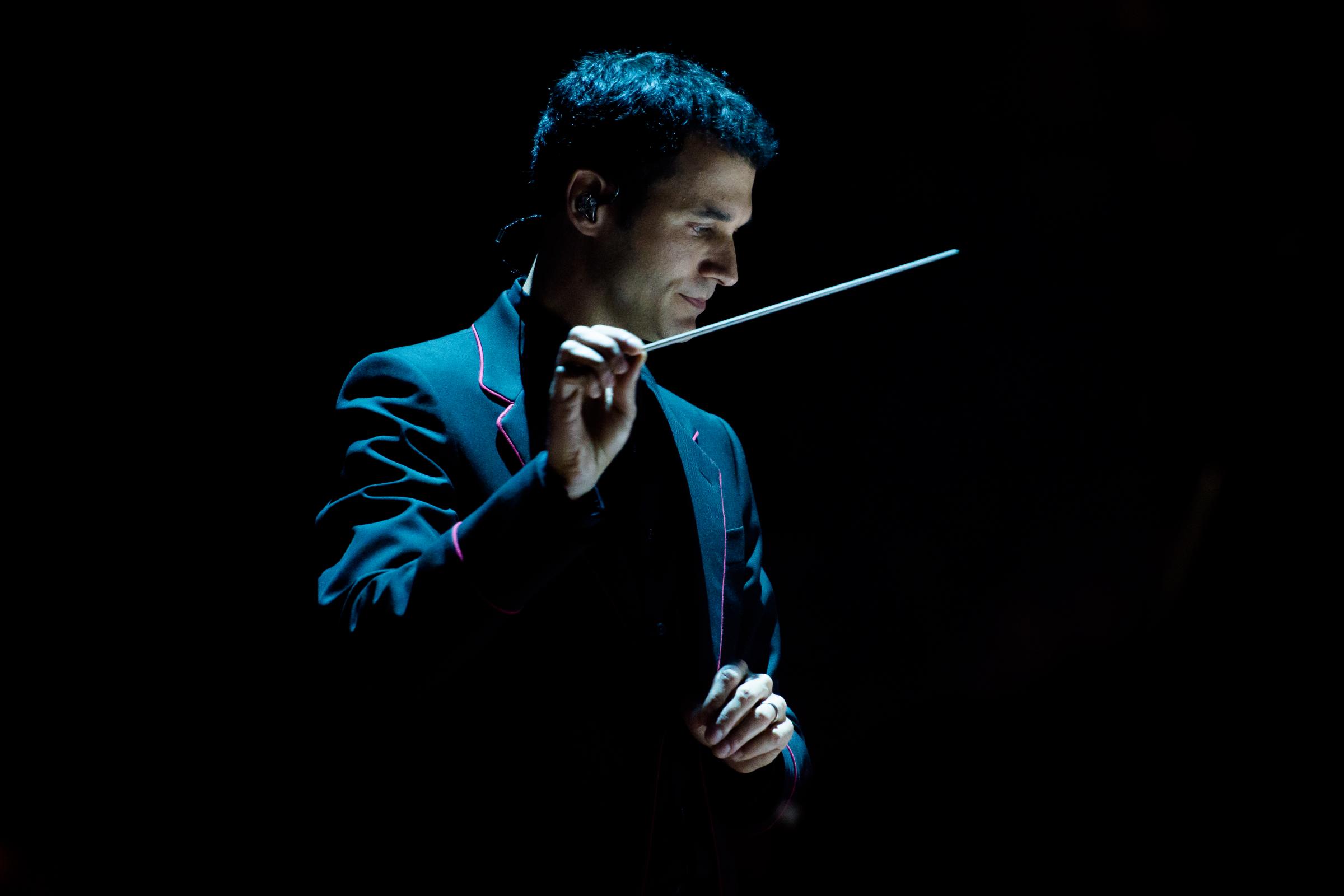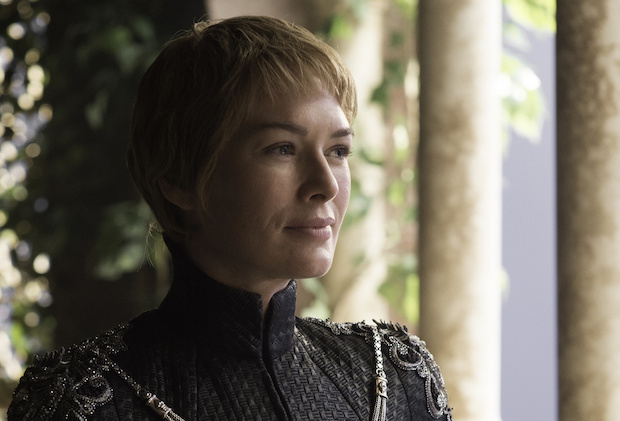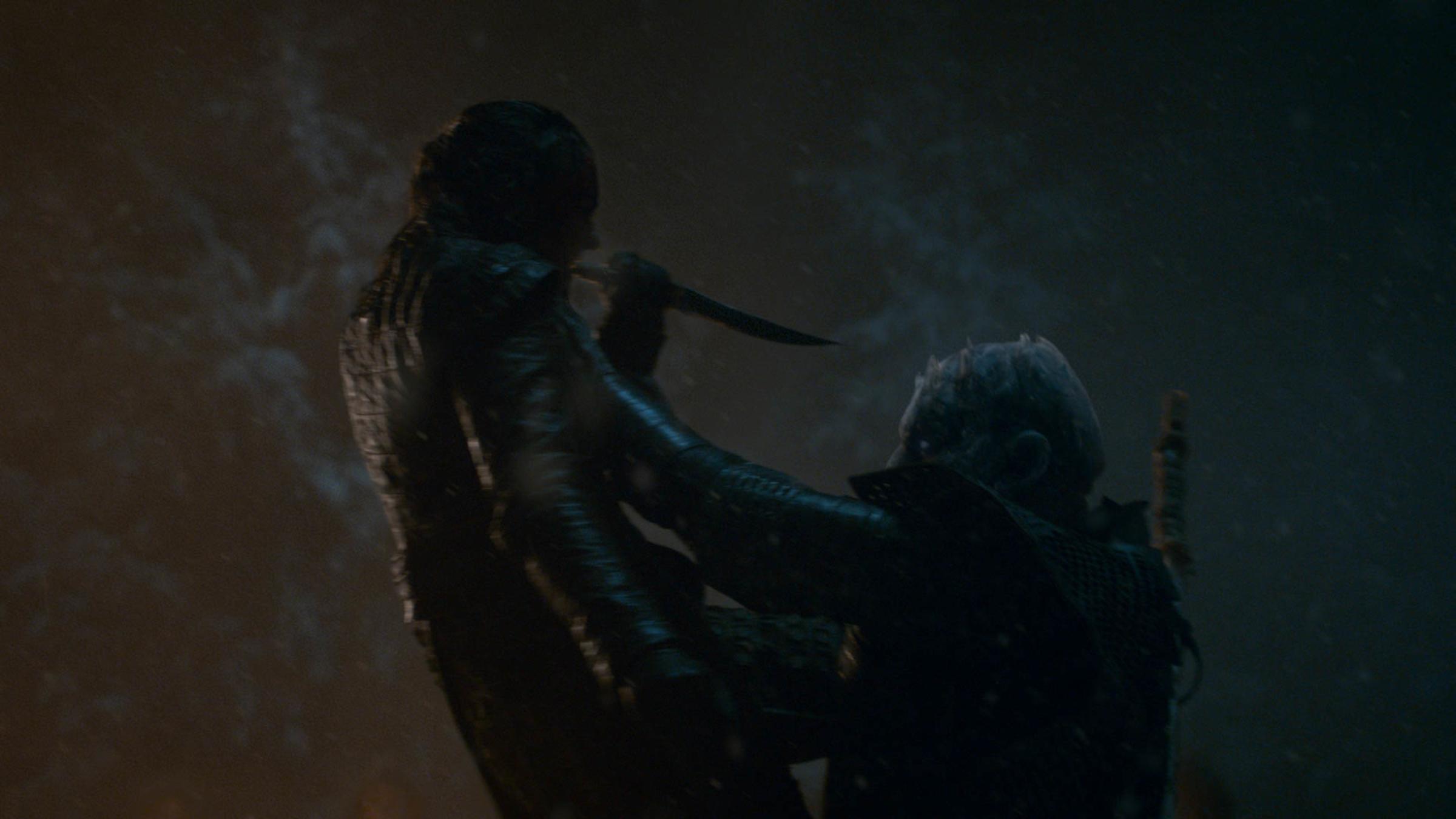The final season of Game of Thrones was met with mixed reviews, but if there was one aspect of season 8 that most fans would agree didn’t disappoint, it was the music.
Thanks to composer Ramin Djawadi, who won his second consecutive Emmy for Outstanding Music Composition for a Series on Sept. 15, Game of Thrones has long been lauded for its equal parts epic and emotionally stirring score. From the show’s unforgettable main title theme to melodic adaptations of the lyrics to songs from George R. R. Martin’s A Song of Ice and Fire book series like “The Rains of Castamere” and “Jenny of Oldstones,” Game of Thrones‘ music became so popular over the course of its eight-season run that Djawadi decided to create an experience that would allow fans to enjoy his compositions in a live concert format.
Djawadi tells TIME that it was Game of Thrones showrunners David Benioff and D.B. Weiss who originally gave him the idea for the Game of Thrones Live Concert Experience. “We were in the studio — this was at the end of season 3 when they heard ‘Mhysa,’ which is the final piece of the season — and they said, ‘Ramin, you should do a concert. Why don’t you do a live concert?'” he explains. “And I just kind of ran with that comment and fulfilled my childhood dream, which was going on tour.”

The Game of Thrones Live Concert Experience kicked off in 2017 with a 24-date tour that hit cities across the United States and Canada, finishing up in early October. Djawadi then took the show international in 2018 before bringing it back for a third and final run in outdoor theaters across North America this year.
The concert features a live orchestra and soloists, including Djawadi (who plays electric guitar and piano in the show), performing highlights from the Game of Thrones soundtrack against a backdrop of scenes from the series projected on a big screen and visual effects like pyrotechnics and simulated snow. Its 2019 iteration includes music from all eight seasons, with a post-intermission second half dedicated entirely to pieces from the final two seasons.
Djawadi says that his goal was to make the concert as captivating an experience as possible for fans. “I wanted to put a contemporary spin on the show. I said, ‘We have dragons in [Game of Thrones], why can’t we have some pyro[technics] in the [concert]? Let’s make it a bit more rock and roll,'” he tells TIME. “Creatively, we said, ‘Let’s make it an immersive experience and really have the fans feel like they’re in Westeros.'”
At the Sept. 14 concert at Northwell Health at Jones Beach Theater in Wantagh, N.Y. — one of only four shows that Djawadi himself is scheduled to appear at this time around — arguably the most memorable moment came when Djawadi sat down at the piano to perform “The Night King,” the nearly 9-minute-long track that accompanies the climax of the battle between the living and the dead in the third episode of Game of Thrones season 8, “The Long Night.”
Djawadi says that the piano-centric “The Night King” was the piece from Thrones‘ final season that was the most challenging to compose. “There’s this long sequence when the Night King does a final walk towards Bran. That was a particularly tricky scene to write because it was long, it was all music and we had this idea to tie the scene to the ‘Light of the Seven’ scene from season 6 [when Cersei blows up the Sept of Baelor], which was the first time we used piano.”

He says that part of the difficulty lay in determining how to connect “The Night King” to “Light of the Seven” without making the tracks too similar. “Trying to figure out how to make [‘The Night King’] a cousin of [‘Light of the Seven’] but yet a completely new piece and emotionally related to what was happening in the scene was definitely challenging.”
Djawadi says linking the two pieces allowed the music to function as a sort of red herring for the episode’s end. “In season 6 when we used the piano for the first time, it was a really big deal. The audience really picked up on that because we had never used that instrument before,” he says. “We knew people would think back to ‘Light of the Seven’ and how everything went Cersei’s way…We knew that if we played an emotional piano piece, it would feel like this is the final blow, it’s over and the Night King is going to win. And then of course, Arya comes in at the end and saves the day, so we were able to set up this emotional finale in a way that the sudden turn was unexpected.”

When Djawadi and his accompanying orchestra performed “The Night King” at Jones Beach Theater, the performance earned a hearty round of applause and enthusiastic cheers from the audience. That reception is hardly surprising, considering that the track immediately went viral after premiering on the show in April, garnering over 2.2 million streams that month alone.
After the final Game of Thrones Live Concert Experience show comes to a close on Oct. 5, fans will be able to continue streaming not only “The Night King,” but the entirety of the Game of Thrones soundtrack on a variety of different platforms. But for Djawadi himself, the end of the tour will mark the end of a defining era of his career.
“I love the show and working with David and Dan so much. It was such a long run and it was such a family,” he tells TIME. “Having the concert is a nice way of hanging onto the show and having the music still out there. As much work as it is to prepare these concerts, the payoff is just so great. To connect with the audience, it’s been something I’ve really enjoyed.”
More Must-Reads From TIME
- The 100 Most Influential People of 2024
- The Revolution of Yulia Navalnaya
- 6 Compliments That Land Every Time
- What's the Deal With the Bitcoin Halving?
- If You're Dating Right Now , You're Brave: Column
- The AI That Could Heal a Divided Internet
- Fallout Is a Brilliant Model for the Future of Video Game Adaptations
- Want Weekly Recs on What to Watch, Read, and More? Sign Up for Worth Your Time
Write to Megan McCluskey at megan.mccluskey@time.com